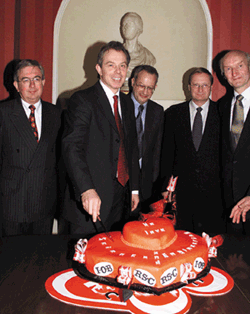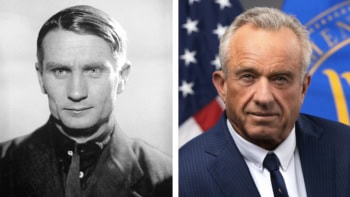One unexpected consequence of the farce that was the recent presidential election in the United States was that it inspired two leading universities to set up a Voting Technology Project to develop a new voting machine that would "prevent a recurrence of the problem that threatened the 2000 presidential election". The project team recently issued its first report. It is unlikely that the chads and other problems that plagued the vote in Florida last year will resurface in the forthcoming general election in the UK - variously predicted to happen in early April or May. And it is equally unlikely that science will feature much in the pre-election debates. However, the UK's learned societies are already trying to raise the profile of science and engineering within Parliament, and there are a number of extremely pressing education issues that need urgent attention.

Last month the Royal Society of Chemistry mustered together a collection of like-minded bodies – including the Institute of Physics, the Institute of Biology and the Engineering Council – for the launch of a “charter for science and engineering”. The charter was launched at a meeting at the House of Commons attended by representatives of the three main parliamentary parties.
The ten-point charter contains few surprises, and it remains to be seen what impact it will have. However, a unified statement on research by more than 100 scientific, mathematics and engineering societies in the US in 1997 is often credited with playing a role in maintaining healthy levels of government investment in science. With rumours abounding that President Bush is going to chop the US science budget to make room for $1600bn worth of tax cuts, a similar campaign could soon be needed again.
The UK’s Labour government has been good to science, as the charter acknowledges. However, a number of key challenges for the future stand out: the recruitment and retention of school teachers; salaries and career paths for academic researchers; and energy and the environment. All three are also areas of concern for the government’s new chief scientific advisor, David King.
The shortage of teachers is a problem that has expanded from just the physical sciences to most areas of the curriculum. The government has introduced various schemes to combat the shortage, but without much success so far. The scale of the problem was illustrated at the launch of the charter by Richard Sykes, rector of Imperial College in London, when he pointed out that fewer than 1% of graduates from Imperial – the UK’s foremost college of science and technology – go into teaching. The government’s recent statements about the end of “bog standard” comprehensive schools show that it is open to new thinking. Promises to write off student debts for new science teachers over a ten-year period might work, although much student debt is due to other Labour policies.
Labour’s motto at the last election was “Education, education, education”. “Teachers, teachers, teachers” could well be the cry this time around.
The last word
The epilogue of James Gleick’s biography of Richard Feynman describes how Feynman lost his temper during an interview with an unnamed historian of science. In his article, Robert Crease reveals that he was that historian, and describes the misunderstandings that can arise when outsiders – historians, social scientists and journalists – interview eminent physicists. The final scene of this episode, as recounted in the book, is not related to Crease’s article, but is certainly worth repeating here. As Feynman fumes, Murray Gell-Mann looks out of his office and says: “I see you’ve met Dick.”



